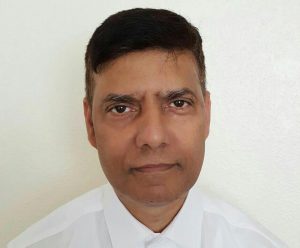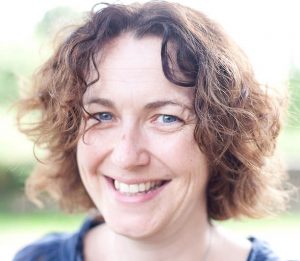At the start of his caring journey, Ally Khodabocus didn't consider himself to be a carer: "I didn't even question it, I was a parent doing my job and doing what you are supposed to do. You have a child and they are your responsibility. We felt very alone in a house with a new baby and knowing something was wrong, but we really didn't know what to do."
As Carers Week continues we are grateful to Ally (and RiPfA) for sharing this deeply personal experience of caring.

I work in London as a travel advisor for Transport for London. I enjoy my job because I meet people and when I’m busy it takes my mind off things. Sometimes I meet customers with a child like mine and that brings a smile to my face, it creates some conversation.
My son is 23 years old now, and I consider him a blessing for a lot of reasons. Having a child with Down’s syndrome makes you look at life in a different way and it opens up a different world for you. You meet people that you never would have met otherwise, and you realise life isn’t just about doing well at school. If you have a normal child you are probably quite focused on the academic side of things and the competition with other children. You can’t do that if you have a child with Down’s syndrome – you can’t compare them. They are unique.
It has been challenging to get social workers to recognise this, that children with Down’s syndrome all have completely different abilities and needs. You can’t assume that one can do something just because another can. You can’t treat them all the same.
Having a child with downs syndrome isn’t something you expect. It gets thrown at you. You don’t get a booklet telling you how it works. It’s a learning curve that you go through.

At the start I didn’t consider myself a carer. I didn’t even question it. I was a parent doing my job, doing what you are supposed to do. You have a child and it is your responsibility. We felt very alone, in our house looking after a new baby that we knew there was something wrong with, but we didn’t really know what we were supposed to do. For the first two years we just got on with it. But the more I found out about Down’s Syndrome, the more I started to worry about what it was and what I was supposed to do to help my child as he grew up.
Gradually I started to get involved with support organisations. When I spoke to other parents it really helped because I could see what they had done. It made me feel less overwhelmed because I was thinking ‘if you have done this, then I can too’.
Looking back, I think what I learned is that you have to accept it first and then realise there is hope out there. You realise you’re not the first. And when you see others who are ten or twenty years on from that, it gives you hope.
Does Ally's story resonate with your own experience caring for family or friends? If so, the Department of Health's Carers Strategy 'call for evidence' would like to hear from you. Share your concerns, hopes and fears for better carer support here.
1 comment
Comment by R J Harris ( Mr ) posted on
Caring always begins in the home.